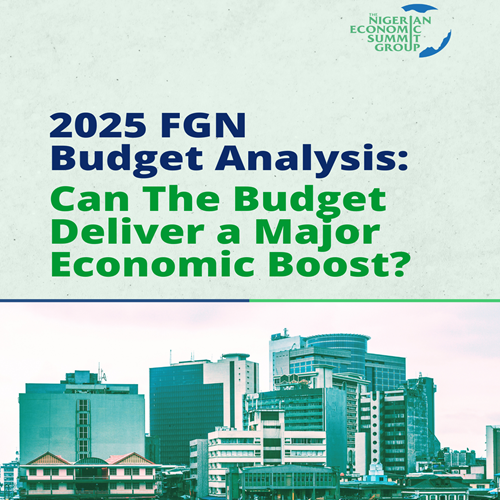Posted Sun, Apr 27, 2025 1:31 PM
Download Report (97 downloads)
Economically, it is crystal clear that achieving robust economic growth and inclusive prosperity in Nigeria requires higher public spending than the previous level, which had ranked the country as one of the world’s economies with the lowest public expenditures.
Between 2015 and 2024, total government spending averaged just 13.1 percent of the country’s Gross Domestic Product (GDP), far below the global average of 30 percent and even below the Sub-Saharan African (SSA) average of 21.2 percent. This chronic underinvestment limits the country’s ability to build human capital, develop infrastructure, and drive economic diversification.
In addition, the current operational public finance management framework of the Federal Government of Nigeria (FGN) is considered less effective in ensuring the government's annual budget plays its economic stabilisation and balancing role (see Figure 1). Thus, the process has continuously yielded less optimal conditions of anticipated economic returns and improvement in the social welfare of the citizens.
In this state, the size of the public expenditure is not as important as the government being effective in resource mobilisation and allocation.
A review of FGN’s 2025 budget disclosed that the government is intentional about using its expenditure to boost aggregate demand, support output growth, and drive overall economic development in the year.
Aside from the historic high value of the budget, capital expenditure was notably more than recurrent expenditure (non-debt). A key feature of the 2025 budget is its ambitious fiscal expansion, prioritising infrastructure development, debt servicing, and increased allocations to statutory bodies, including newly established regional development commissions.
However, the three underlying issues affecting budget performance in the last decade also exist in this year’s budget. The issues are the efficiency of public expenditure, revenue optimisation, and growing debt servicing, which continue to hamper economic growth every year.
